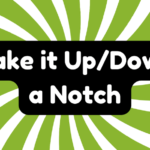The phrase "up on" signifies an awareness or understanding of a subject. Its origins trace back to the 1678 text, *The Pilgrim's Progress*, where it embodies themes of progression and engagement. Commonly used in sentences like "She is up on the latest technology," it suggests a need for continuous learning in today's information-heavy environment. However, relying solely on this phrase may oversimplify discussions requiring depth. The necessity to stay informed remains essential for maneuvering complexities in professional and personal domains. Exploring this phrase further reveals its layers and relevance in contemporary conversations.
Synonyms
Understanding the nuances of language is essential for effective communication, and identifying synonyms for the phrase "up on" can enhance one's ability to convey knowledge awareness. While many might view this phrase as casual, utilizing appropriate alternatives adds depth to our discourse. Here are three notable synonyms for "up on":
- Informed – Signifies a state of being knowledgeable about current insights.
- Aware – Implies consciousness of relevant facts or developments in a field.
- Acquainted – Suggests familiarity with specific subjects or trends.
These synonyms not only diversify language usage but also reinforce the importance of being well-versed in rapidly evolving topics. As we aim for greater innovation, it is vital to consciously enhance vocabulary, ensuring that our communication reflects both clarity and expertise.
Example of Sentences
Utilizing synonyms for the phrase "up on" can effectively enhance communication, particularly in conveying the depth of knowledge one possesses about a subject. When discussing critical insights, here are some illustrative examples:
- "She is consistently aware of the latest fashion trends that shape consumer preferences."
- "Being informed about software updates guarantees efficiency and minimizes security risks."
- "Professionals who remain knowledgeable about market dynamics can better anticipate changes."
In today's fast-paced environment, relying solely on the term "up on" may seem simplistic. An informed individual transcends surface-level familiarity, opting instead for thorough understanding. As trends rapidly evolve, one must prioritize staying informed—not just for self-improvement but to navigate complexities intelligently. The implications of ignorance can be particularly costly in competitive landscapes.
Origin
The origins of the phrase "up on" can be traced back to its broader usage of "up," which has long symbolized progress and advancement in knowledge. Historically, the term reflects a state of elevation, suggesting that to be "up on" something means one is not merely informed, but actively engaged and current. Etymological roots reveal that "up" has been synonymous with awareness and understanding for centuries, as evidenced by its earliest recorded usage in "The Pilgrim's Progress" in 1678. This historical usage underscores the importance of being well-informed in various domains. However, as information rapidly changes, one might question whether simply being "up on" is sufficient for meaningful engagement in today's complex landscape. Continuous learning is essential to maintain relevance.
Collocations
Collocations associated with the phrase "up on" demonstrate its versatility in various contexts, often reflecting a strong connection to awareness and knowledge. Understanding these collocations can enhance our communication and comprehension. Here are some relevant examples:
- "Stay up on" – this phrase emphasizes the need to remain informed.
- "Keep up on" – suggesting the importance of ongoing awareness in a particular area.
- "Get up on" – indicating the action of acquiring knowledge about new topics.
These phrases synonymous with "up on" provide insight into the nuances of being informed. However, relying solely on such phrases can be misleading; true understanding comes from deeper engagement with the material. In rapidly changing environments, staying genuinely "up on" matters is essential for informed decision-making.
How to Use in Everyday Language
Often, people find themselves looking for ways to integrate the phrase "up on" into their daily conversations to convey knowledge and awareness. In everyday usage, this phrase can enhance interactions by signaling that one is knowledgeable about current trends or events. When discussing topics like technology or popular culture, incorporating "up on" can foster deeper connections and illustrate engagement. For instance, you might say, "I'm up on the latest tech innovations," which invites further discussion. However, it is essential to use this phrase discerningly. Overuse can sound disingenuous, making a speaker seem overly self-promoting. Consequently, using "up on" in conversational contexts should feel organic, reflecting genuine familiarity rather than a mere rhetorical flourish, fostering meaningful discourse instead.
Why Is It Still Relevant Today?
Awareness remains an essential currency in today's fast-paced world, where information is constantly evolving and accumulating. In maneuvering current trends, being "up on" key developments can considerably bridge knowledge gaps that often hinder progress. Without this awareness, individuals risk falling behind, particularly as industries rapidly change and adapt. Staying informed is not merely advantageous; it is crucial for competitive relevance in any professional arena. Recognizing trends allows organizations and individuals to anticipate market shifts, informing strategic decision-making. Skeptically, one might question whether staying informed can catch up with information overload, yet it is precisely this need for discernment and insight that keeps the concept of being "up on" ever-relevant in our innovations-driven society.







